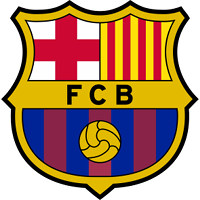MARADONA v MESSI
It is a debate that has been raging between fans of Diego Armando Maradona and Lionel Messi for the best part of a decade – which of the two Argentine legends is greater?
It's largely impossible to sway people on this issue; people seem set on being either Team Diego, or Team Messi. But during this downtime - and just for fun! - we thought we would analyse both their careers across the following criteria:
1) Trophies and Honours
2) Goals
3) Longevity
4) Adaptability
5) International Career
6) Big Games
7) Club Career
8) Cultural Impact & Legacy
1. TROPHIES & HONOURS
In terms of pure numbers, Messi is the clear winner. He has won 10 league titles to Maradona’s three and 24 domestic trophies to Diego’s eight. Messi also has 10 continental and international club crowns to Maradona’s one. For the national team, Messi has not won a senior title whereas Maradona claimed the World Cup. In total, including Fifa-recognised youth tournaments, Messi has won 36 team titles. Maradona won 10.
When it comes to the biggest individual honours, it is very difficult to compare the pair. Messi has won a record six Ballons d’Or but Maradona wasn’t eligible for football’s most prestigious personal prize until 1995 when the rules were changed to allow non-Europeans to challenge. By this time, Maradona was 35. Football’s other esteemed individual honour – the Fifa World Player of the Year – was not created until 1991 when Maradona was 31. Messi has won the Fifa-only prize twice.
Similarly, Messi has been named La Liga Best Player eight times. However, the Serie A-equivalent of this award was not created until 1997 – long after Maradona had departed.
Both players claimed the Fifa World Cup Golden Ball - in different circumstances - while Diego was named Fifa Player of the Century in 2000 along with Pele.
2. GOALS
Messi blows Maradona away when it comes to overall goals. He has scored over 700 goals for club and country – only six players in history have more – and has won a record six European Golden Shoes. Leo holds countless other goalscoring records, including being the all-time top scorer for Barcelona, Argentina and in La Liga. He also holds the record in Europe for the most goals ever scored in both a single club season (73) and calendar year (91).
Maradona hit 357 goals in total during his career – more than half of Messi. Diego was Napoli’s all-time top scorer for almost 30 years until he was overtaken by Marek Hamsik. He was his league’s top scorer six times, while Messi has won the Pichichi Trophy on six occasions. Maradona scored 34 times in 91 Argentina games, while Messi has 70 in 138.
However, it must be recognised that, in addition to playing over 200 games less, Maradona was deployed in a much deeper role than Messi for the majority of his career. For Napoli, he featured mostly as an attacking midfielder behind two forwards but regularly dropped into his own half to begin attacks.
Maradona also played in a very defensive Italian league, while Serie A only contained 16 teams for most of his seven years there (La Liga has 20) and there were far less games in European competition before the advent of the Champions League in the 1990s.
3. LONGEVITY
Both Maradona and Messi were teenage sensations, although Diego reached a world class level at a younger age. He was the youngest ever debutant in the Argentina Primera Division at 15 and received his first Argentina cap at 16. By 20, he’d already scored over 100 senior club goals and he broke the world transfer record at 21 when joining Barcelona.
Messi debuted for Barcelona at 17 and Argentina at 18, although he didn’t truly become a regular starter for either side until he turned 19. He had scored 26 goals for Barcelona by the age of 20, so his goalscoring potential was yet to be unlocked.
Both Argentines were consistently world class throughout their twenties, although Messi has been far superior in his thirties. Since turning 30, Messi has scored over 100 goals, won a sixth Ballon d’Or and lifted two La Liga titles. Maradona’s professional and personal life unravelled after 30 with two long drug bans and an unremarkable season at Sevilla, before he endured an injury-hit end to his career back in Argentina.
4. ADAPTABILITY
Messi has few rivals for the title of greatest one-club man in football history. Certainly, no one can boast the levels of consistency that Messi has demonstrated at Barcelona for the best part of 15 years.
But Cristiano Ronaldo, for one, argues that testing and proving yourself in different teams, leagues and environments is a greater barometer of one’s true greatness.
While Messi has remained in his comfort zone, Maradona was consistently the best player in both the Argentine and Italian leagues - winning multiple honours for three different sides. Contrary to popular opinion, he was also outstanding during his two seasons at Barcelona, scoring 38 goals in 58 games and winning a Copa del Rey.
5. INTERNATIONAL CAREER
And unlike Messi, Maradona also achieved immortality by winning the World Cup. Although Leo has outscored Diego in national colours, he has largely underperformed for the Albiceleste at major tournaments.
In four World Cups, Messi failed to score a single knockout goal. Although he was named as the best player at the 2014 World Cup, the decision to award him the Fifa Golden Ball was universally criticised. He also fell short at clutch moments in his five Copa America appearances, scoring knockout goals in only two of these and firing blanks in all three losing finals. He also missed a penalty in the 2016 shootout.
Messi’s supporters argue that he would have won a World Cup or Copa America had Gonzalo Higuain not squandered a golden opportunity in three successive finals. They also claim that Leo never enjoyed a supporting cast worthy of international success.
The latter argument certainly doesn’t wash. With the exception of the 2018 World Cup and 2019 Copa, Argentina possessed squads rich with world class talent; the likes of Sergio Aguero, Carlos Tevez, Hernan Crespo, Juan Roman Riquelme, Javier Mascherano, Esteban Cambiasso, Angel Di Maria, Roberto Ayala and Walter Samuel.
Indeed, in terms of individual quality, the Argentina squads that reached successive World Cup finals in 1986 and 1990 were two of the weakest the nation has had in the last 50 years. Jorge Valdano was the only other starter from 1986 to truly star for a European club.
It was Maradona who single-handedly dragged his country to glory. His exploits in scoring sensational doubles against England and Belgium in the quarters and semis, before supplying the late assist for Jorge Burruchaga’s winner in the final, are the stuff of legend. He was also pivotal in taking Argentina to the final four years later. He supplied a brilliant game-winning assist for Claudio Caniggia against Brazil in the last 16 and turned his adopted city of Naples against their national team in a semi-final upset of the hosts and favourites.
6. BIG GAMES
While Messi has often disappointed when it really matters for Argentina, his record in showpiece games for Barcelona is almost unparalleled. He is one of a small group of players to score in more than one Champions League final and has regularly delivered when the pressure is on; his late double in the 2011 semi-final against Real Madrid a perfect example of this.
Only Cristiano Ronaldo has scored more Champions League knockout goals than Messi’s 46. Leo also holds the record for the most assists (14) in the knockouts. Domestically he is just as impressive with a record 26 Clasico goals.
Along with Pele, Maradona is surely the best big-game player in international history and, despite being notorious for his drug-fuelled antics, he almost always delivered at club level in the key matches. He hit a classy winner against AC Milan in the run-in to the 1987 Scudetto, produced inspirational displays versus Juventus, Bayern Munich and Stuttgart on the path to 1989 Uefa Cup glory, and enjoyed a barnstorming end to the 1990 season as Napoli pipped Milan to another league title.
7. CLUB CAREER
The one hole Maradona has in his club resume is the European Cup. While Messi has won four Champions Leagues and set numerous records, Maradona only played two seasons and six games, scoring two goals.
However, it must be recognised that during Maradona’s era, only the winners of their domestic leagues qualified for a European Cup that lasted a maximum of nine games. Had today’s rules applied, then Maradona would have enjoyed several seasons and tens of matches in the inflated Champions League. Diego did also inspire Napoli to victory in the Uefa Cup, a competition which was in many ways more difficult to win than the European Cup due to the presence of each league’s second, third and fourth best teams.
Messi’s club CV is undoubtedly more impressive numerically, however we must recognise that football in the 1980s was far more competitive than it is today. That decade’s Serie A was the most contested league in history from top to bottom, with virtually every side boasting one or two world class stars; from Marco Van Basten, Ruud Gullit and Frank Rijkaard at mighty Milan to Zico and Edinho at lowly Udinese. During Diego’s seven years in Italy, there were six different Serie A winners and the same number of different European Cup and Uefa Cup champions.
Today, most major leagues have been monopolised by one or two rich super clubs. Barcelona and Real Madrid have shared 14 of the last 15 La Liga titles and eight Champions Leagues in the same time. Thus, it has been much easier for Messi to rack up major club trophies and goals.
Modern attackers have also massively benefited from the relaxing of the offside rule, the advancement of sport science, better pitches and more protective referees. Messi has certainly received his fair share of kicks but never like some of those that went unpunished when Maradona was active. Just ask ‘The Butcher of Bilbao’, Andoni Goikoetxea.
8. CULTURAL IMPACT AND LEGACY
Along with Johan Cruyff, no person in Barcelona’s history has left such an indelible mark on the club. The 32-year-old has broken virtually every record possible – many of which are unlikely to ever be beaten – and taken the Blaugrana to heights never before witnessed. He has provided so many unforgettable moments of genius – the Maradona-esque run against Getafe, the four goals versus Arsenal, the meme-inspiring humiliation of Jerome Boateng – the list is never-ending. On a club level, Messi’s global legacy is comparable with anyone.
When it comes to the cultural impact on a whole country and city, Maradona raises the bar to another level. Naples was Europe’s poorest city – a “sewer” that was viciously dominated, exploited and discriminated against by the rich, industrial north. When Maradona arrived, Napoli had just narrowly avoided relegation, yet he dragged a team that had won just two Italian Cups in their entire history to Scudetto glory. In doing so, he became the symbol of the poverty-stricken south’s fight against their northern masters. He achieved God-like status in Naples, replacing the city’s patron saint, San Gennaro, as Naples’ most beloved son.
It is on the international stage where Messi’s legacy falls short. Maradona has achieved immortality in his homeland for his exploits in 1986. He is remembered globally for winning football’s most iconic prize virtually single-handedly and scoring both the greatest and most controversial goals in history versus England.
The trophyless Messi, on the other hand, has never received the same love back home. He is not considered a ‘man of the people’ like Maradona and even Carlos Tevez was, and has also never played in the Argentine league.
From a technical and physical standpoint, there is nothing to separate the careers of Maradona and Messi, certainly at their peaks. The clean-cut Messi has maintained his fitness and performance better into his older years, although Maradona was far superior mentally in terms of leadership and in inspiring ordinary team-mates at Napoli and Argentina to achieve greatness.
Messi may be the greatest club player of all time, but Maradona is the best in history overall due to his international heroics.
Let's just enjoy them both!

 Napoli
Napoli  Barcelona
Barcelona  Man Utd
Man Utd  Arsenal
Arsenal 


















